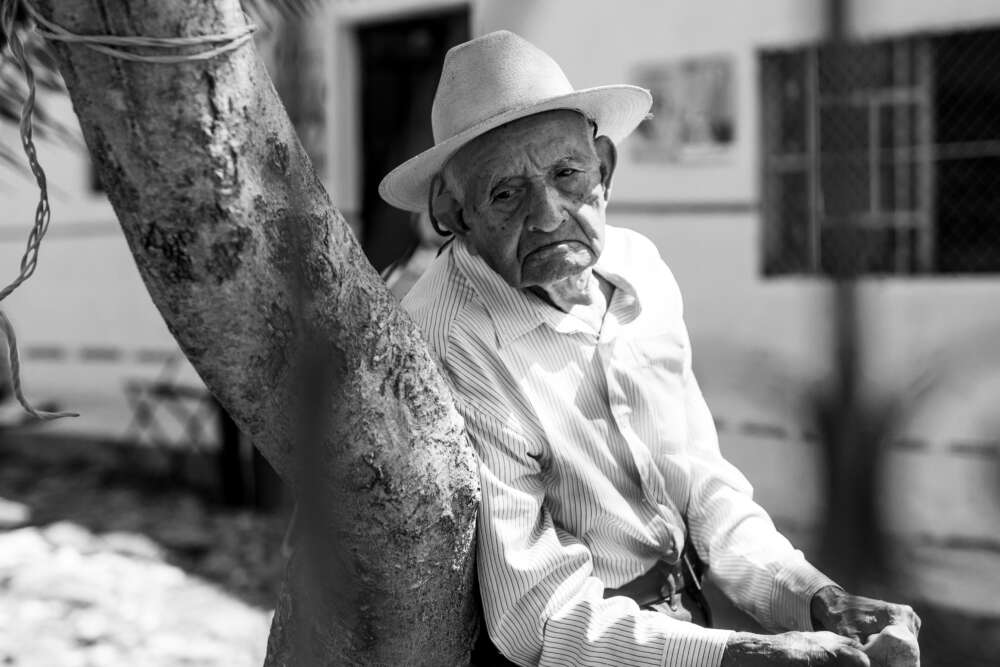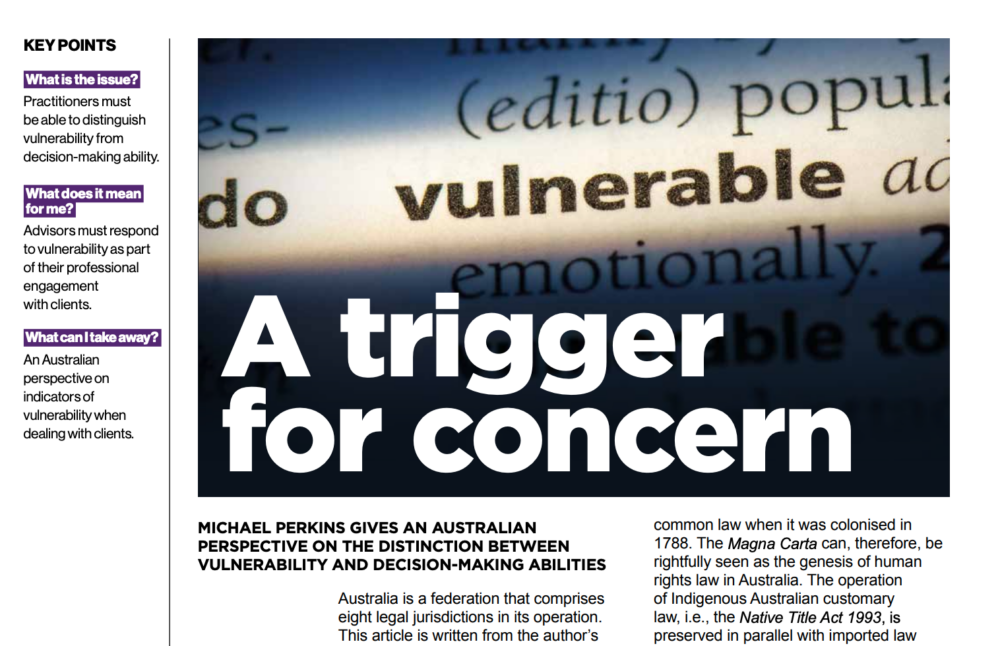
* Decision making is a human right but many people assume this right no longer exists in the vulnerable, explains lawyer Michael Perkins. To Find out more about how Autonomy First Lawyers can help the vulnerable decision maker, go to their site on the Good Grief! Business Directory.
“Decision making is a human right,” explains Principal Lawyer at Autonomy First Lawyers, Michael Perkins.
“And in Australia, this is recognised in the Australian Law Reform Commission’s (the ALRC’s) National Decision-Making Principles,” he explained.
But even though in Australia we all have the right to make our own decisions, many people assume this right no longer exists in the vulnerable. They confuse vulnerability with lack of legal capacity and sometimes this is deliberately misconstrued to exploit others, Michael said.
The capacity to make decisions involving your finances, such as your power of attorney and your will, is strictly defined. Having a very clear legal definition ensures that when someone has lost the capacity to make a decision about their finances because of, for example, dementia, this situation can’t be exploited by those around them.
“Sadly, especially as people age and become dependent, in some cases and in some families, the line between supporting a person to make a decision and controlling that person’s opportunities to make that decision can become blurred.”
Michael Perkins
Some people, such as the extremely elderly or the extremely frail are very vulnerable. They might have difficulty getting into a car or sitting up straight in bed to sign a document. But that same person could still be mentally astute and therefore, have the capacity to make their own decisions.

“The existence of vulnerability in a person does not diminish their right to make a decision but may limit their ability to make a decision,” Michael explained.
“Sadly, especially as people age and become dependent, in some cases and in some families, the line between supporting a person to make a decision and controlling that person’s opportunities to make that decision can become blurred,” he said.
A fine line often develops between vulnerability, disability and abuse
“A fine line often develops between vulnerability, disability and abuse. And very sadly, sometimes the problem in behaviour this creates is with the person’s own representatives,” he said.
As mechanisms are put in place to help a person manage all aspects of their life, such as their finances, their decision about where they will live and their access to other people, such as members of their extended family, we need to be very careful that, paradoxically, this doesn’t create a noose which tightens around them.
“Supporting the decision-making resilience of a client is a key value we provide through our services,” Michael said.
“At Autonomy First Lawyers, we argue it is a step too far to say that to be vulnerable necessarily limits a person’s decision-making ability. Instead, vulnerability may be seen to create the potential for a person to be less able to resist the influence of others.
“It may be seen as an indicator of special disadvantage requiring response.”
“Vulnerability can also then be seen as an attribute of the client or customer for evaluation, not a state that automatically imposes further legal liability or obligations.”
“Responding to a person’s vulnerability (including the level of their available cognition) must, therefore, be focused on optimising a person’s decision-making ability, not compensating for a person’s deficits.”
Michael says that this means use of substitute decision makers should always be a last resort.

For further reading, please go to:
https://autonomyfirstlawyers.com/2023/04/27/trigger-for-concern/

Here is a set of Good Grief! articles which Michael recommends.
https://good-grief.com.au/crucial-end-of-life-conversation
